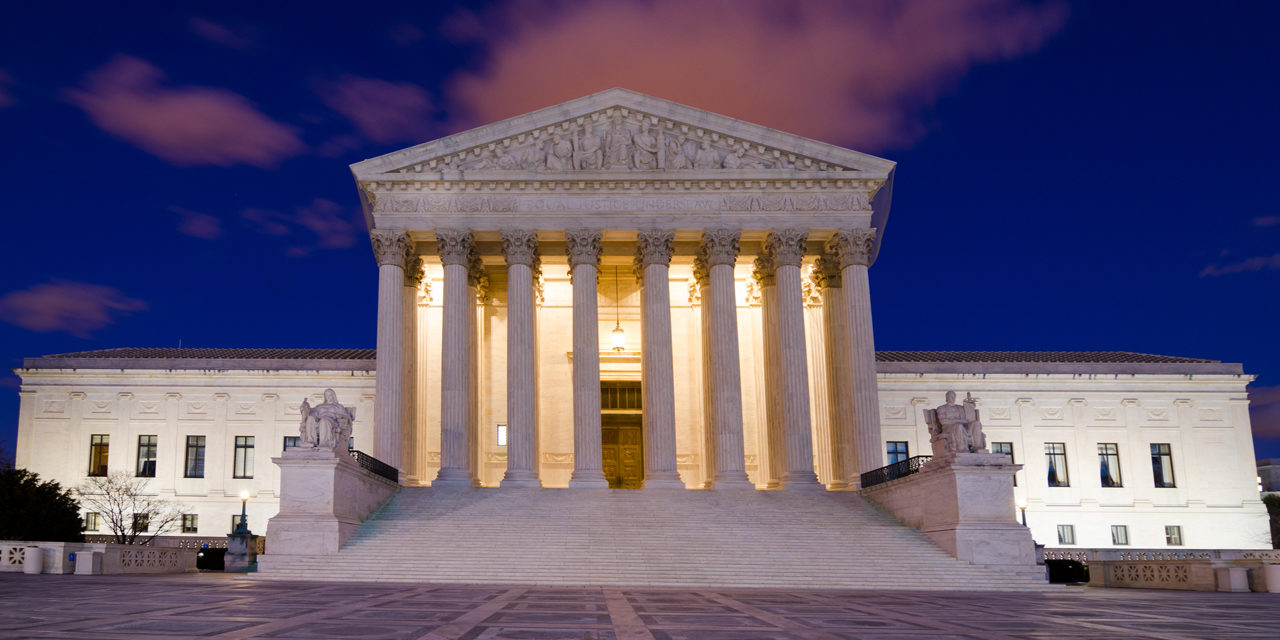The U.S. Senate voted 52-48 on Monday night to confirm Judge Amy Coney Barrett to the U.S. Supreme Court. Senator Susan Collins, R-Maine, was the only Republican to vote “nay.”
The newly minted and soon-to-be sworn in Judge Barrett is a pro-life, Catholic mother of seven who will be only the fifth woman to serve on the nation’s highest court. Additionally, she is just the second woman ever confirmed to the Supreme Court with a Republican president.
For the past several decades, Republican presidents have had a fairly mixed record at picking Supreme Court justices. Although the Grand Old Party has picked 16 of the last 20 justices, many of those court appointees have continued to enshrine much of the Left’s agenda into Supreme Court precedent.
From abortion, to same-sex marriage to the redefinition of gender, judges who were thought to be ideologically conservative when they were nominated have ended up swinging to the left once confirmed. Justices Stevens, O’Conner, Kennedy and Souter come to mind.
In 2000, Eleventh Circuit Court of Appeals Judge William Pryor ended a speech he gave with this prayer, which conservatives have since made their own: “Please God, no more Souters.”
Amy Coney Barrett is no David Souter and she has the conservative paper trail to prove it.
Here’s why conservatives should celebrate tonight’s monumental victory.
In 2018, a three-judge Seventh Circuit panel declared two Indiana abortion laws unconstitutional. The first law made it illegal for a woman to abort her child on the basis of race, sex or disability. The second required fetal remains to be either cremated or buried following an abortion, rather than tossed in the trash with other “medical waste.”
A dissent from the court’s denial to rehear the case was written by Judge Easterbrook who called the first law a “eugenics statute.”
“Using abortion to promote eugenic goals is morally and prudentially debatable… None of the [Supreme] Court’s abortion decisions holds that states are powerless to prevent abortions designed to choose the sex, race, and other attributes of children,” Judge Easterbrook wrote.
Regarding the second law which promoted the humane treatment of the body parts of aborted babies, he explained, “The panel has held invalid a statute that would be sustained had it concerned the remains of cats or gerbils.”
In other words, the court’s decision treated human fetal remains worse than those from pets.
Judge Barrett joined Judge Easterbrook’s dissent alongside two others who disagreed with the Seventh Circuit’s decision.
On the Second Amendment, Judge Barrett’s conservative bona fides have again been put to paper.
In 2019, she dissented from a court opinion that prohibited Rickey I. Kanter from possessing a firearm due to a felony mail fraud conviction.
In what can only be described as a magnum opus of originalism, Judge Barrett authored a thoroughly argued and well-research opinion rooted in the text and history of the Constitution.
“History is consistent with common sense: it demonstrates that legislatures have the power to prohibit dangerous people from possessing guns. But that power extends only to people who are dangerous,” Judge Barrett wrote.
“Founding-era legislatures did not strip felons of the right to bear arms simply because of their status as felons… Absent evidence that he either belongs to a dangerous category or bears individual markers of risk, permanently disqualifying Kanter from possessing a gun violates the Second Amendment,” she noted.
Moving on to Judge Barrett’s textualist method of interpreting law, in 2017, she authored a constitutional commentary in the University of Minnesota Law Review criticizing Chief Justice John Robert’s opinion upholding the constitutionality of Obamacare.
“In NFIB v. Sebelius… Chief Justice Roberts pushed the Affordable Care Act beyond its plausible meaning to save the statute,” Justice Barrett wrote.
“Justice Roberts has not proven himself to be a textualist in matters of statutory interpretation… [He] has found himself on the opposite side of staunch textualists like Justices Scalia, Thomas, and Alito.”
This apt and correct criticism is music to the ears of many conservatives. It is balm to their wounds from the blows left by those who were supposed to be conservative court picks
Clearly, the court changed on Monday night.
Yesterday, the Supreme Court was the Roberts Court. Today, it is the Thomas Court.
And no matter who wins the presidential election next week, that is something conservatives can celebrate.
Photo from Shutterstock
Visit our Election 2020 page






